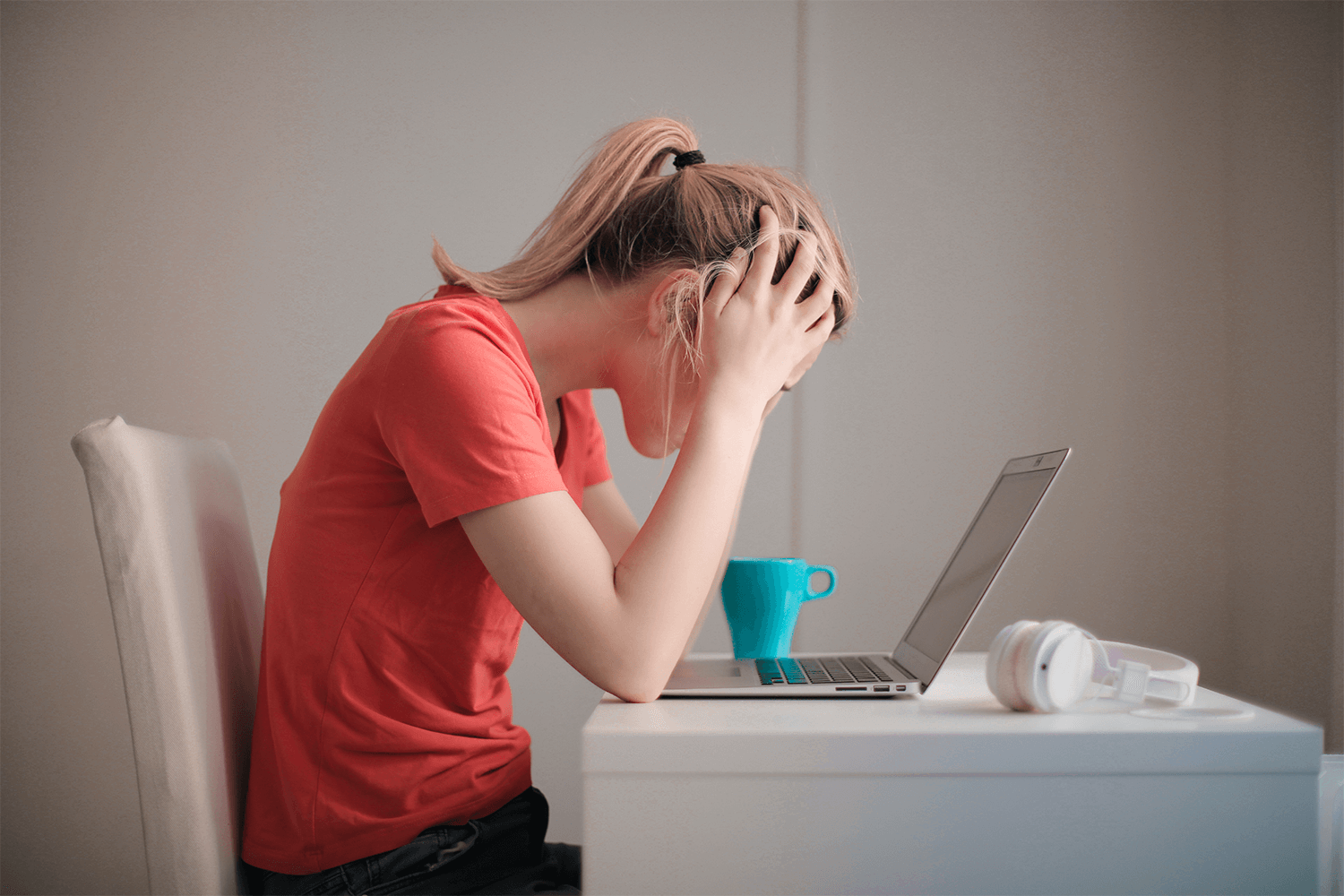Written by Shannon,
Brightside Health
6 Minute Read

Medically reviewed by:
Erin O'Callaghan, PHD
Director of Therapy
10 Minute Read

Anxiety can interfere with a person’s ability to go about their daily routine, and if you are struggling with any form of anxiety, you may know this very well.
People with anxiety can have a range of severity. Anxiety may or may not have a significant impact on someone’s personal or work life. Regardless, seeking professional help and evidence-based treatment, including therapy and/or medication, can greatly benefit the lives of people with anxiety and help them get back to being themselves again.
The first step towards developing coping strategies for your anxiety is recognizing the signs and symptoms of anxiety. Symptoms can sometimes disguise themselves, and you may not realize that one of your regular behaviors may actually be a result of your anxiety.
Let’s take a look at the signs of anxiety and how you can spot them in yourself or a loved one.
Anxiety: Know the signs
There are many types of anxiety disorders, and over 40 million Americans are affected by it each year. Anxiety is the most common mental health condition, so you should know that you’re not alone if you are feeling symptoms.
Symptoms of anxiety may include:
- Feeling excessively anxious and worried more often than not, even without a cause
- Finding it very difficult to control your worried feelings
- Feelings of restlessness, tension, constant tiredness, difficulty concentrating
- Irritability
- Sleep disturbances, whether it be difficulty falling or staying asleep or poor sleep quality
- Feeling easily startled or constantly jumpy and on edge
- Having anxious thoughts that interfere with your life or relationships
It can be difficult to identify anxiety in yourself because society has normalized stress, especially in work and school. You may be living with anxiety if you’re constantly worrying, you have racing thoughts, or you’ve been losing sleep.
Other signs of anxiety can include:
- Catastrophic thinking
- Overthinking
- The need for constant reassurance
- People-pleasing
- Nervous chatter
- Nervous habits like nail biting, lip biting, or playing with your hair
- An inability to say “no”
- A limited social life
- Fear of the future
- Constantly comparing yourself to others
- Periods of procrastination followed by periods of intense work
Some individuals with anxiety may seem like overachievers. They’re outgoing, punctual, proactive, and high-achieving, which can mask the internal chaos driving their decisions. Although individuals with anxiety may seem organized and calm on the outside, if their drive to achieve comes from a place of fear, it’s likely that they’re living with anxiety and may not even realize it.
Understanding these signs can make it easier for you to recognize when your anxiety is getting the best of you.
11 coping strategies for anxiety
There are many coping strategies you can make use of when it comes to managing your anxiety, but these 11 coping methods may be the most beneficial:
- Take some time to yourself when you are feeling anxious. When you begin noticing anxious thoughts or behaviors in yourself, try taking a little while to practice self-care. This could mean practicing yoga, taking a bath, listening to music, or doing something else that you enjoy and find peace in.
- Watch your alcohol and caffeine intake, especially on particularly anxious days. Limiting your consumption of alcohol and caffeine overall may help lessen your anxiety, but you should avoid these especially on days where you are feeling more anxious than usual. Both alcohol and caffeine can aggravate symptoms of anxiety and panic disorders.
- Make sure you get enough sleep. Poor sleep can aggravate anxiety symptoms, so make sure to rest up when you are feeling anxious.
- Pause and take a few deep breaths. Interrupting anxious thoughts by stopping what you are doing and taking a few slow, deep breaths can help clear your mind.
- Pause and slowly count to 10. Similar to the previous coping strategy, pausing and slowly counting to 10 can also interrupt anxious thoughts and help calm your mind.
- Move your body. Exercising or doing other activities that get you up and moving can be a great way to rid yourself of stress and nervous energy.
- Avoid skipping meals, and try to make your meals balanced. Proper nutrition is a key component of your overall health and wellbeing, and frequently skipping meals or leaving gaps in your diet can contribute to feelings of anxiety.
- Focus on being your best rather than being perfect. One symptom of anxiety can be perfectionism, and re-routing your thoughts such that you focus on becoming your best self and doing your best, rather than striving for perfection, can help ease anxiety.
- Challenge negative thoughts and automatic assumptions. When you catch yourself in an anxious spiral, you may notice that many of your thoughts are hypothetical, negative scenarios that have not yet happened. When you notice this, try to challenge this thought process with questions like “What are the chances this negative outcome will really happen?” or “Even if this negative thought is true, could I live with it? How would I cope with it?”
- Pay attention to your triggers. Over time, you may begin to notice a pattern regarding when and where you start feeling anxious, as well as who you are with. If you pick up on these things, it can help you identify what triggers your anxiety.
- Turn to your support network and talk to someone about your struggles. Whether it be family, friends, other loved ones, or a therapist, finding someone to talk to about your anxiety can help you feel supported and comforted when you are struggling. Anxiety can sometimes be a tough battle to fight alone, and speaking to a loved one or a professional when you are feeling overwhelmed can help.
Alternatively, psychotherapy or medication may be helpful if you cannot find relief through these coping methods.
Brightside provides you with access to mental health professionals who can match you with the appropriate medication if applicable, and can provide you with evidence-based therapy.
If you think medication or therapy may be beneficial for you, you can take our free online assessment and receive advice regarding what treatment path may be the best for you. With Brightside, medication can be conveniently delivered right to your door in most states, making treatment fast and easy.
Anxiety is tough, but Brightside can help.
The bottom line
Anxiety and its symptoms may be managed through coping strategies like taking time to practice self-care or relaxation when you are feeling anxious, getting enough sleep and exercise, and making sure to eat regular and well-balanced meals. Taking care of your health and wellbeing overall in these ways may help ease your anxiety.
That said, sometimes these strategies may not be enough to bring you the relief you deserve, and in this case, medication or therapy may be beneficial.
Speaking with a professional about your struggles with anxiety can help you learn further strategies when it comes to managing your symptoms, and your therapist or psychiatrist can help you come up with a plan regarding how to interrupt anxious thoughts in the future. On the other hand, medication is another option that can help suppress anxious feelings, and a professional will give you a prescription if they believe medication may serve you well.



















